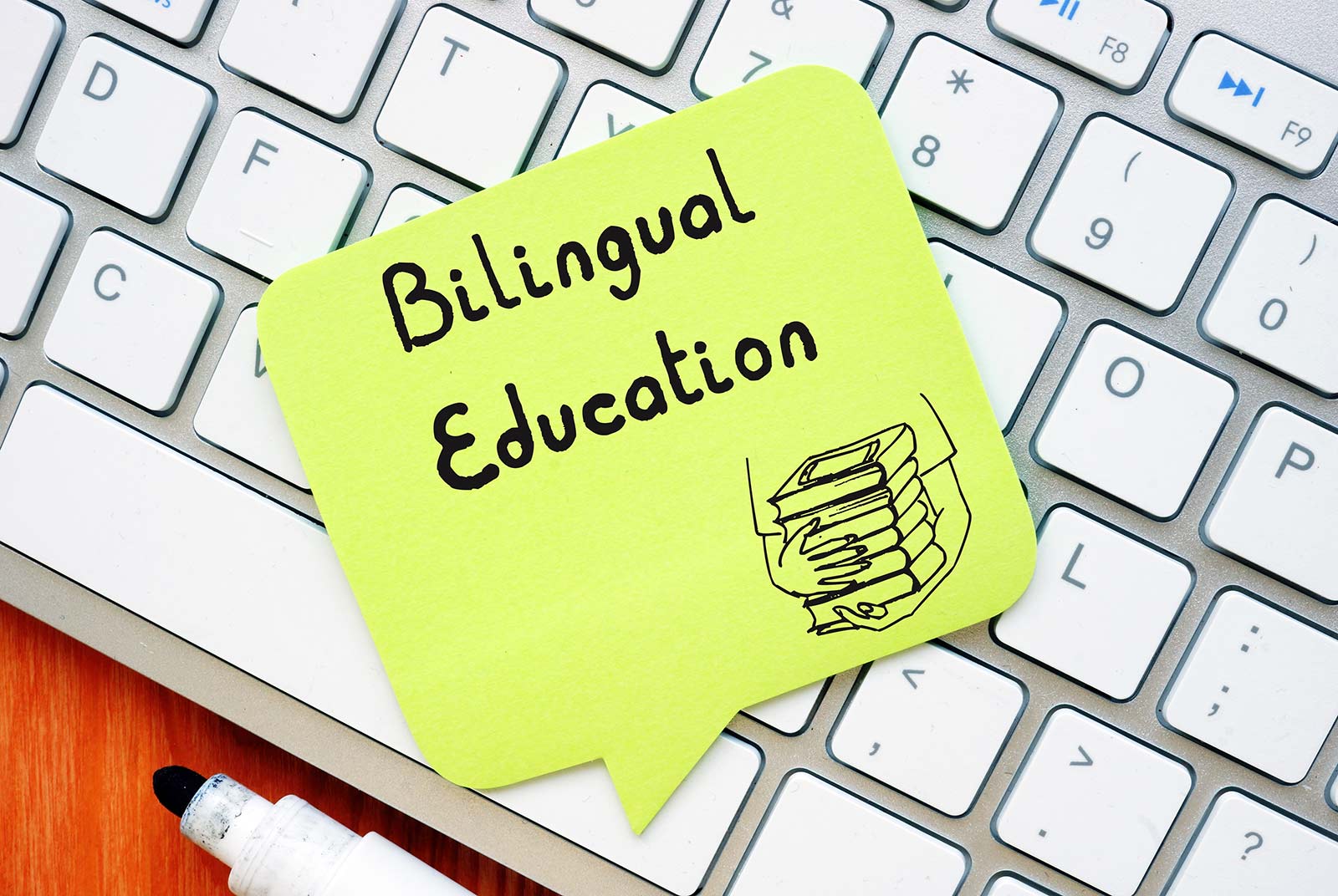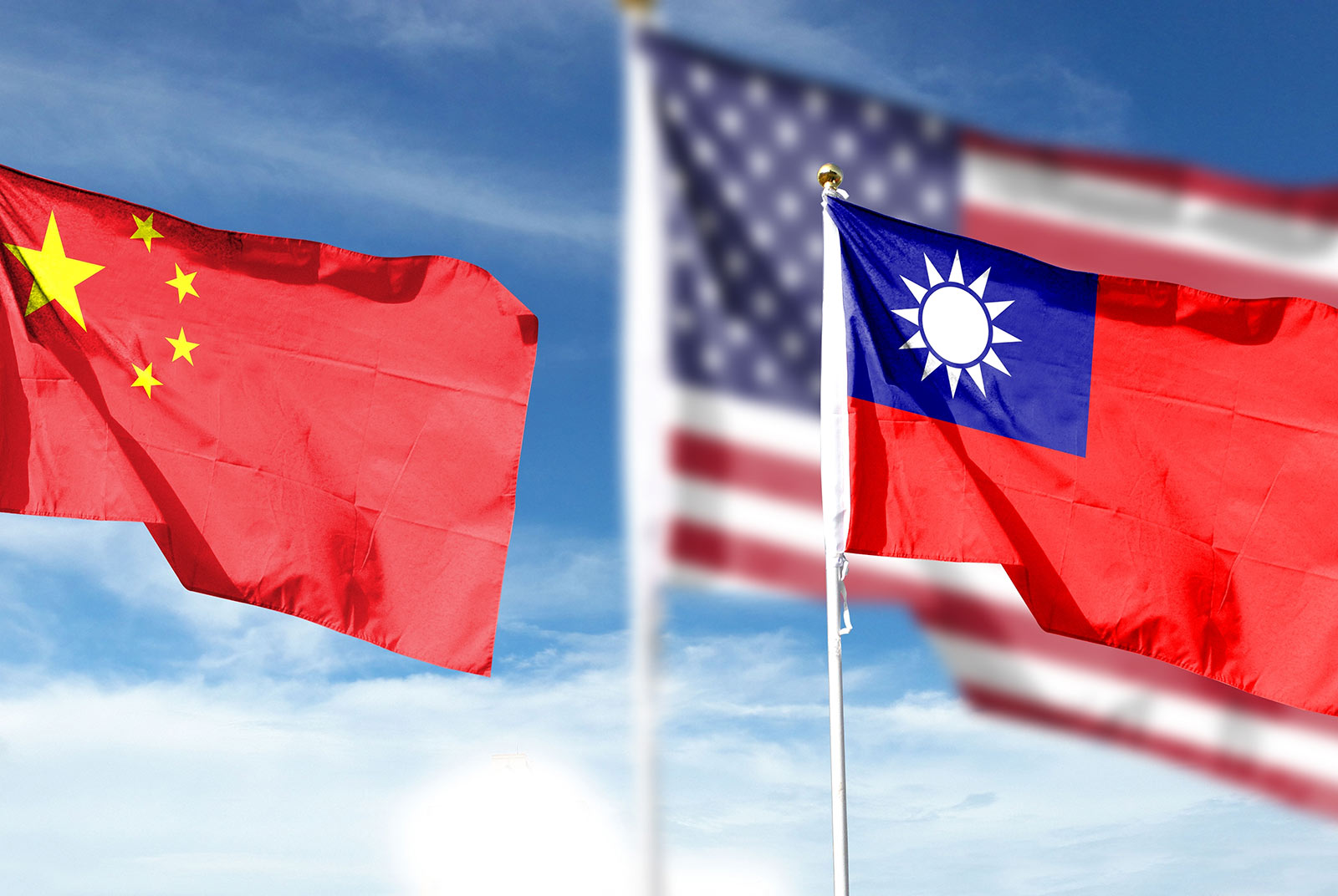Leveraging Taiwan’s techplomacy in Europe

Source:Office of the President R.O.C.
Taiwan as a digital hub in Asia should extend its diplomatic outreach to Europe by embracing techplomacy—that is cooperating with European countries to allocate Taiwanese techno-ambassadors and establish high-quality centers in these nations.
Views
Leveraging Taiwan’s techplomacy in Europe
By Kuan-ting Chenweb only
Taiwan has been in the spotlight, given its recognized reputation as “the world’s largest semiconductor foundry”, which accounts for 20% of global semiconductor manufacturing capacity. In her Double Ten National Day address in October, President Tsai Ing-wen (蔡英文) said that “The global shortage of semiconductor chips has highlighted Taiwan’s importance in supply chains”. Additionally, the archipelago is well-known and highly-appreciated for its achievements and progress in the information and communications technology (ICT) industry, making Taiwan a “manufacturing hub” and a competitive market compared with other countries.
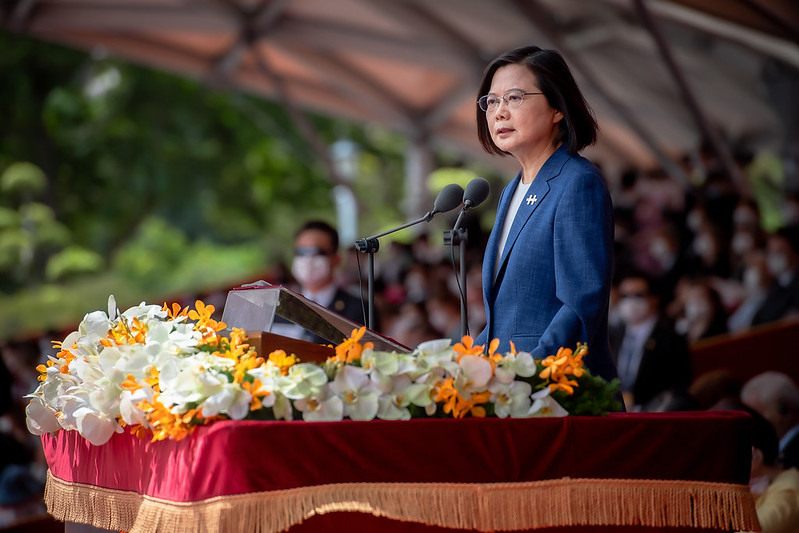 (Source: Office of the President R.O.C.)
(Source: Office of the President R.O.C.)
As Taiwan has long underscored the spirit of “Taiwan Can Help, and Taiwan is Helping!”, the nation is willing and able to team up with other countries to foster mutual understanding and benefits. As the world is growing in need of advanced technologies, e.g. artificial intelligence (AI), autonomous devices, fifth-generation (5G) communication, and new computational modes, the success of Taiwan’s semiconductor industry could offer solutions and initiatives for countries willing to engage with Taiwan.
Taiwan has transcended from traditional diplomacy to digital diplomacy, but now Taiwan needs to aim for higher course of new sorts of modern diplomacy, with concrete strategies and policies. In 2017, Denmark appointed the first tech ambassador Casper Klynge to Silicon Valley, and Klynge’s primary goal is to “create a network of technology companies, universities and various organizations.”
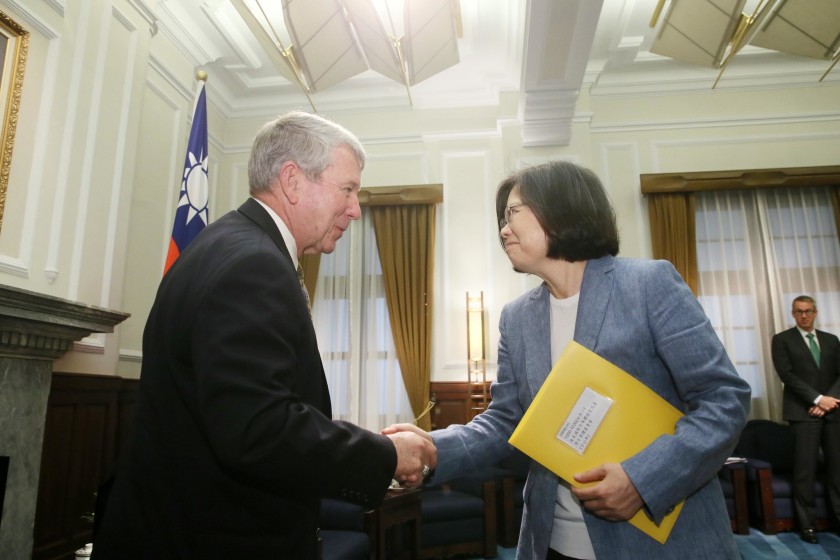 President Tsai meets with directors from the Semiconductor Equipment and Materials International (SEMI) and the Taiwan Semiconductor Industry Association (TSIA) as well as top executives of a number of semiconductor firms from home and abroad. (Source: Office of the President R.O.C., license CC BY 2.0)
President Tsai meets with directors from the Semiconductor Equipment and Materials International (SEMI) and the Taiwan Semiconductor Industry Association (TSIA) as well as top executives of a number of semiconductor firms from home and abroad. (Source: Office of the President R.O.C., license CC BY 2.0)
The Nordic country also went further to carve out a new strategy for “TechPlomacy” that emphasizes the three core principles: responsibility, democracy and security. Denmark’s initiative should be embraced by the Tsai Ing-wen administration, which has quick to adopt new channels of communication with global audiences and demonstrated its willingness to utilize newly effective sorts of diplomacy.
Taiwan as a techno-democracy is well-prepared to undertake a more vital role in communicating with the world effectively. Fostering its tech diplomacy, usually referred to as “Techplomacy,” should be a major turning point in Taiwan’s public diplomacy.
The core philosophy is Taiwan’s techplomacy is not a threat to the world; in fact, Taiwan is helping the world to the best of its capability.
What Taiwan truly needs is competent “ambassadors”, who are equipped with a qualified technology background and could push Taiwan’s high-tech advantage ahead. The first role that these techno-ambassadors should contribute is to make sure that Taiwan’s cooperation with like-minded countries and partners would generate mutual benefits. Another contribution that Taiwanese technology ambassadors could make is to explore and deepen cooperation between Taiwan’s high-tech firms and overseas partners.
Given Taiwan’s recent engagements with Central and Eastern European (CEE) countries, Taiwan should capitalize on this opportunity to leverage cooperative actions with CEE partners. The possibility of fostering Taiwan’s techplomacy in these countries is highly potential as CEE countries have showcased their strong enthusiasm for deepening ties with Taiwan. Following National Development Council (NDC) chief Kung Ming-hsin’s visits in the Czech Republic, Lithuania, and Slovakia, and Taiwan’s Minister of Foreign Affairs Joseph Wu’s stops in Bratislava, Prague, and Brussels, Taiwan should keep the momentum going by working hand in hand with these countries to raise the potential of facilitating Taiwanese technology ambassadors in Europe.
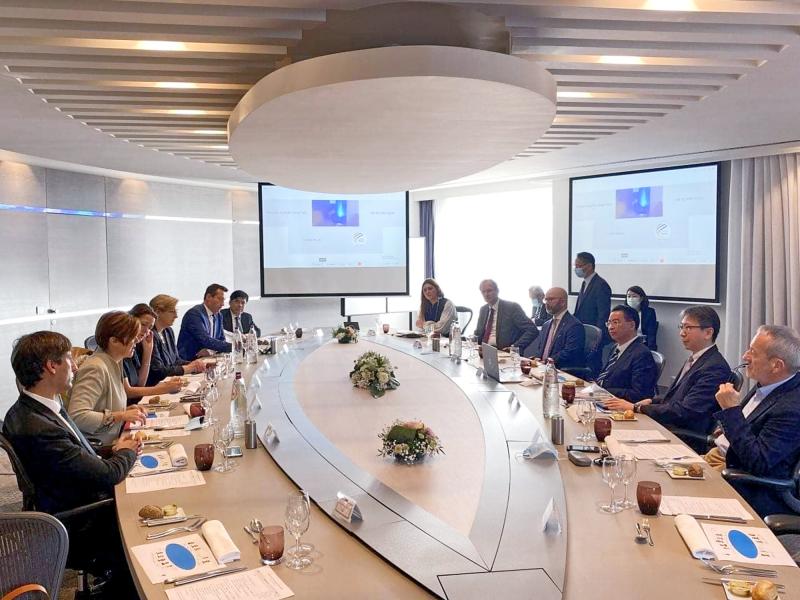 (Source: Ministry of Foreign Affairs)
(Source: Ministry of Foreign Affairs)
A new chapter on Taiwan’s relations with CEE countries has opened and both sides need a new framework or initiatives to mark this milestone. The arrival of a European Parliament delegation in Taiwan in early November continued to make Taiwan a trustworthy partner of European countries. Raphaël Glucksmann, the leader of the seven-member delegation, said that “Europe is standing with Taiwan in the defence of freedom, rule of law and human dignity. We have learned a lot from its experience in standing up to destabilisation attempts. We are now looking forward to new ways of cooperation”. The European Parliament’s ongoing support for Taiwan could be read as the European value-oriented approach towards Taiwan.
 The European Parliament delegation arrived in Taiwan in early November. (Source: Ministry of Foreign Affairs)
The European Parliament delegation arrived in Taiwan in early November. (Source: Ministry of Foreign Affairs)
Techplomacy is likely to come at the right time when European nations are seeking ways to diversify their external relations amid concerns about China’s aggression. As the support within Europe for Taiwan is immense, both sides should step up this momentum to make Taiwan’s status and international standing visible in the continent. The best way for Taiwan and European countries to move closer and closer should begin with a people-to-people oriented approach, which techplomacy could surely help by engaging both governments, individuals, and high-tech companies to join a network of responsible stakeholders. Thus, both sides could make new connections in other technology-related fields—bridging between technology and environment or technology and energy.
The presence of Taiwanese high-tech ambassadors in CEE countries could be seen as a political gesture—fostering the European audience’s understanding of Taiwan’s high-tech achievements, democracy, and transparency—that aims to run deeper in bringing mutual economic gains. Taiwanese high-tech ambassadors in Europe may then spearhead high-quality research/ innovation centers in European countries and make digital centers the key strategic assets that Taiwan and their partners should nurture. Now it seems to depend on the Tsai government’s strategic calculation about making techplomacy the priority of Taiwan’s foreign-policy outreach to Europe.
(This piece reflects the author's opinion, and does not represent the opinion of CommonWealth Magazine.)
About the author:

Kuan-Ting Chen is the CEO of Taiwan NextGen Foundation, a Taipei and Chiayi-based think tank conducting research and public programs related to Taiwan’s New Southbound Policy, soft power, and bilingual education. Prior to joining NextGen, he served as the Chief Research Officer and Deputy Spokesperson of Taipei City Government, and a Research Analyst in Taiwan’s National Security Council. Chen has a BA in International Studies from the University of Wisconsin-Madison, and an MPP from the University of Tokyo.
Have you read?
♦ Morris Chang’s master plan for 50 years: The art of sowing despair
♦ Why Taiwan remains an integral part of the EU-US cooperation on China
♦ The Distance Taiwan has Travelled: Farewell Message from a British Diplomat
Uploaded by Penny Chiang

